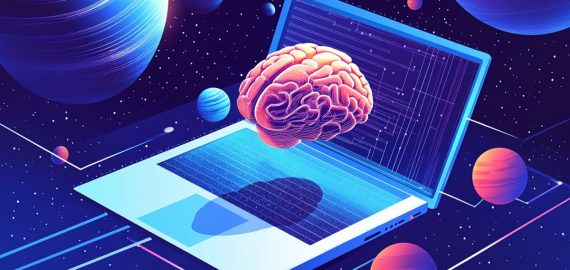The Contest for Privacy Amid Centralized Systems and New Technologies
In Brief
Professionals emphasize the pressing concern surrounding centralized data systems, which can significantly jeopardize individual privacy.

The rapid digitization of our world is a double-edged sword. One of its most critical challenges is the growing risk posed by centralized data systems, which often get exploited by both corporate and governmental entities. This issue has drawn significant attention. brought to light by David Holtzman a former military intelligence officer turned chief strategy officer at Naoris, highlighting how centralized frameworks create vulnerabilities that can jeopardize personal privacy.
Centralized Frameworks: A Structure in Peril
At the core of centralized systems is a singular control point. While this model facilitates access and management, it simultaneously creates avenues for exploitation. As Holtzman articulates, the fundamental issue with centralized structures is their inherent centrality, rendering them tempting targets for malicious actors. Furthermore, the advent of AI and quantum computing amplifies these weaknesses. With AI's capability to swiftly process vast amounts of data, surveillance operations can be significantly enhanced. Concurrently, quantum computers threaten conventional encryption methods, potentially exposing sensitive information.
Various sectors, including government, healthcare, and finance, leverage centralized data systems. Given that these systems often manage and store sensitive information, they're prime targets for hackers, authoritarian regimes, and corporate players. As a result, the hazards escalate considerably when control of these systems is concentrated in the hands of just a few individuals.
The Influence of Institutions in a Centralized Landscape
Holtzman suggests that the concentration of power within institutions has hit a critical point, especially in Western nations. He argues that this trend has been on the rise over the past fifty years, propelled by the growing influence of corporate and state entities. In contrast to the more accountable institutions of the 1950s and 1960s, today's organizations possess unprecedented authority over individual data.
The concentration of power among corporations is particularly alarming. Major tech companies, with their vast data collection abilities, have essentially become custodians of the digital age. They dictate the flow of information, shape public sentiment, and possess the capacity for global surveillance on individuals. Such imbalances undermine trust and represent a grave threat to privacy.
The Role of AI and Quantum Computing
Recent developments in AI and quantum computing are transforming digital security landscapes. While AI's pattern recognition and predictive capabilities present novel opportunities, ethical dilemmas also arise. For instance, surveillance technologies powered by AI can monitor populations with unmatched accuracy, enabling repressive governments to stifle dissent. Similarly, the corporate usage of AI for hyper-targeted advertising frequently infringes on personal privacy.
Quantum computing introduces another layer of sophistication. These powerful machines could potentially compromise existing encryption standards, exposing critical infrastructure to cyber threats. This vulnerability spans various domains, from banking transactions to military communications. As Holtzman points out, the centralization of data exacerbates these risks, highlighting the necessity for alternative approaches.
Decentralization as a Solution
A possible path forward lies in decentralization. By distributing control across a network, decentralized systems eliminate the single point of failure characteristic of centralized models. The foundational technology of Web3, blockchain, can facilitate decentralization through its ability to maintain immutable records and encourage trustless interactions.
Utilizing quantum-resistant algorithms for data security is one such application. Designed to withstand the computational power of quantum systems, these algorithms ensure that sensitive information remains protected. Furthermore, as Holtzman suggests, decentralizing AI through blockchain can introduce a human oversight mechanism to mitigate technological misuse. This approach reduces the concentration of power within a select few while empowering individuals.
Privacy and Data Ownership in Web3
Privacy-enhancing blockchain technologies are leading the charge to address the challenges posed by centralized frameworks. These protocols facilitate selective disclosure, allowing users to share only necessary information without revealing their entire data profiles. For instance, zero-knowledge proofs provide a feasible method to protect privacy during on-chain transactions by permitting verification without exposing the underlying information.
The project director of the Data Ownership Protocol, Avidan Abitbol, underscores the importance of privacy for the institutional acceptance of Web3. Without robust privacy protections in place, organizations often hesitate to embrace decentralized systems. By bridging this gap with innovations like zero-knowledge proofs, selective disclosure could render decentralized solutions accessible to a broader audience.
Decentralized AI for Enhanced User Autonomy
Another pivotal focus area is the development of decentralized AI. Executives from the decentralized AI company Onicai argue that traditional AI approaches often serve businesses at the expense of individuals. In contrast, decentralized AI emphasizes user autonomy, ensuring that individuals retain control over their data and the AI tools they utilize.
The challenges posed by closed-source algorithms, which are commonly employed by major tech companies, can also be tackled through decentralized AI. Open-source decentralized methodologies promote transparency and accountability while diminishing the likelihood of exploitation. This approach aligns with the overarching goals of Web3, which aim to foster a more user-centric and egalitarian digital environment.
Biometric Data and the Dangers of Centralization
Biometric data, such as fingerprints and facial recognition patterns, represents one of the most sensitive categories of personal information. Centralized systems storing such identifiers are particularly vulnerable to breaches. Evin McMullen, co-founder of Privado ID, emphasizes the importance of restricting access to biometric data. By employing selective disclosure, individuals can ensure that only those who genuinely need access receive it.
This strategy mitigates the risk of data leaks and bolsters privacy. Solutions like Privado ID empower users to maintain control over their most sensitive information by decentralizing the management and storage of biometric data.
Disclaimer
In line with the Trust Project guidelines Please be advised that the information presented on this page is not intended to serve as, nor should it be construed as, legal, tax, investment, financial, or any other type of advice. It's crucial to only invest what you can afford to lose and to seek independent financial advice if you have any uncertainties. For additional information, we recommend reviewing the terms and conditions, as well as the help and support sections provided by the issuer or advertiser. MetaversePost is dedicated to delivering accurate, impartial reporting, but market conditions are subject to change without prior notice.







